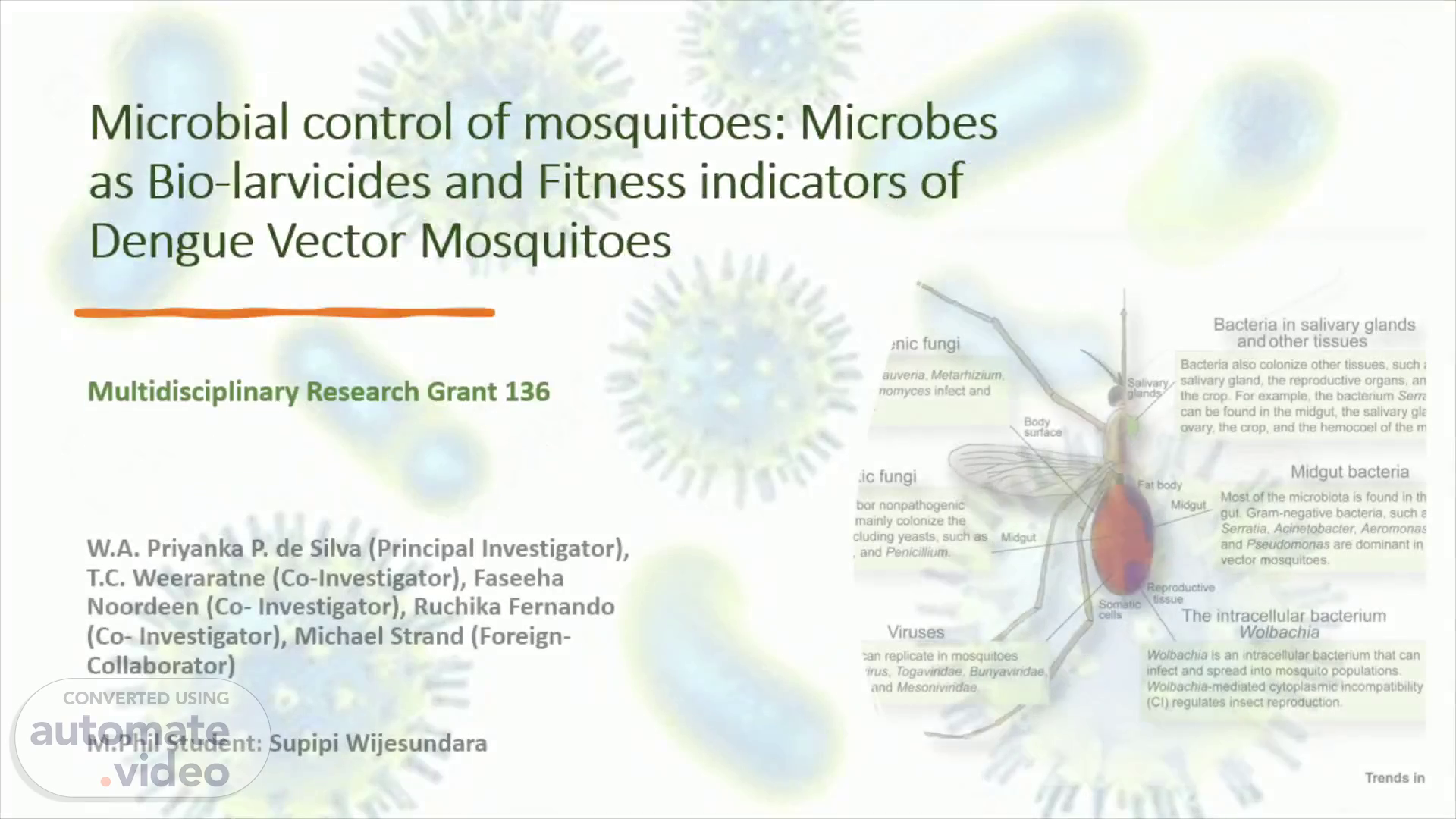
Page 1 (0s)
Microbial control of mosquitoes: Microbes as Bio-larvicides and Fitness indicators of Dengue Vector Mosquitoes.
Page 2 (10s)
[Audio] Dengue is one of the devastating mosquitos borne diseases where the transmission of the disease is involved with Aedes aegypti and Aedes albopictus vector mosquitoes In the absence of effective treatment for dengue disease, the control of mosquito populations is crucial in controlling the disease. Incorporating symbiotic microorganisms into mosquito controlling is an emerging research area which provides an efficient alternative for chemical insecticides. These symbiotic microbes in mosquitoes are important in different aspects of mosquito development..
Page 3 (46s)
[Audio] Therefore the present study was carried out to characterize the composition and structure of microbial communities such as bacteria and eukaryotes in Aedes aegypti and Aedes albopictus in Sri Lanka and identify the microbes that affect the vectorial capacity and fitness of female mosquitoes as well as the larvicidal activity of these microbes ..
Page 4 (1m 17s)
[Audio] Mosquito larvae and eggs were collected from different geographical regions in Sri Lanka and reared under laboratory conditions. Microbes from mosquito breeding sites were cultured and identified using morphological and molecular identification techniques. Germ free mosquito larvae and adults were prepared bio assays were performed..
Page 5 (1m 40s)
[Audio] Many different microbes were identified. Microbes of Aedes Mosquitoes.
Page 6 (2m 20s)
[Audio] A significant difference in wing lengths of mosquitoes from different breeding habitats is notable. However, the body size variations of mosquito populations are independent from the physiochemical parameters of the breeding water, suggesting the effect of unknown factors such as microbes..
Page 7 (2m 40s)
[Audio] Among the isolated microbes, there are two species of Pseudomonas, two species of Enterobacter species, two species of Serratia, Citrobacter freundii and Enterobacteriaceae bacterium that significantly affect mosquito egg hatching, larval growth and development. Moreover, Pseudomonas mossellii bacterium shows strong larvicidal properties against dengue vector mosquitoes.
Page 8 (3m 30s)
[Audio] The utilization of various combinations of microbes has also demonstrated notable effects on the development of dengue mosquitoes..
Page 9 (3m 39s)
[Audio] Findings of the study are novel and are of crucial importance in implementing in dengue vector control programs..